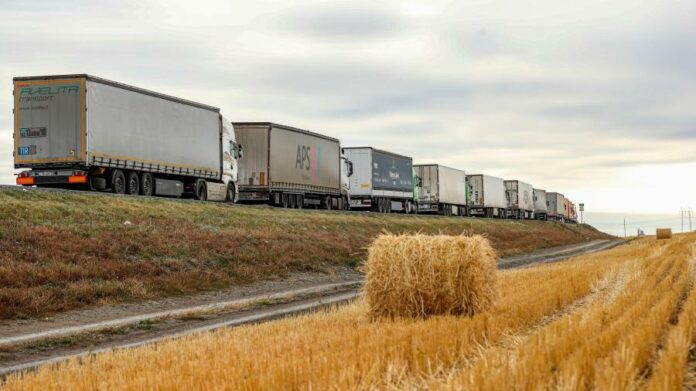Kazakhstan is to monitor goods that pass through the country for re-export, tracking them until they reach their final destination amid a drive by western capitals to prevent foreign companies and individuals from helping Russia circumvent sanctions.
The Central Asian nation, which shares the longest land border with Russia, saw exports to its neighbour — such as consumer electronics — surge last year as sanctions stymied Russia‘s access to western markets.
Kazakhstan, one of Moscow’s closest partners thanks to its historical and cultural ties, has not imposed any sanctions or restrictions on its trade with Russia. But it also enjoys a close trading relationship with the EU, meaning it has to walk a diplomatic tightrope in the wake of Russia’s invasion of Ukraine last year.
Kazakhstan officials insist there are reasons other than the re-export of goods to Russia behind many of the spikes in the export data. But they are also keen to emphasise measures the country has taken to ensure businesses comply, such as the new customs tracking system.
First reported by Eurasianet, the new online tool will be launched on April 1, and “allow real-time tracking of the entire chain of movement of goods from border to border,” a senior Kazakh official told the Financial Times.
“We understand all the risks of secondary sanctions, so we closely monitor our mutual trade with all partners,” the official said, adding that the country “is constantly working to reduce the risks of re-export.”
Data from Kazakhstan’s Bureau of National Statistics showed a 25 per cent increase in exports to Russia last year, compared with the previous year. For example, the number of washing machines exported to Russia from Kazakhstan rose from zero in 2021 to almost 100,000 in 2022.
But officials in Kazakhstan highlight rising energy prices and other factors to explain the rise in value terms of some trade. They also point to the fact that many products, for example from Europe, that have arrived for re-export to Russia come from countries such as Turkey and China which have not imposed any limits on trade with Russia.
The re-export practice, commonly referred to as “parallel imports” in Russia, is reported to involve companies in countries that share a customs union with Russia, such as Kazakhstan and Armenia.
The companies, whether locally owned or set up by Russian nationals, buy goods from western firms that have either boycotted Russia since the start of its invasion of Ukraine, or have stopped exporting to Russia because of sanctions.
Often, these items are western consumer goods, such as mobile phones. After receiving the goods in these third countries, the companies re-export them to Russia.
The Kremlin has a long list of items with legalised parallel imports, meaning companies moving such goods on to Russia no longer need approval from the original producer, for example from Apple for the import of its latest iPhones.






